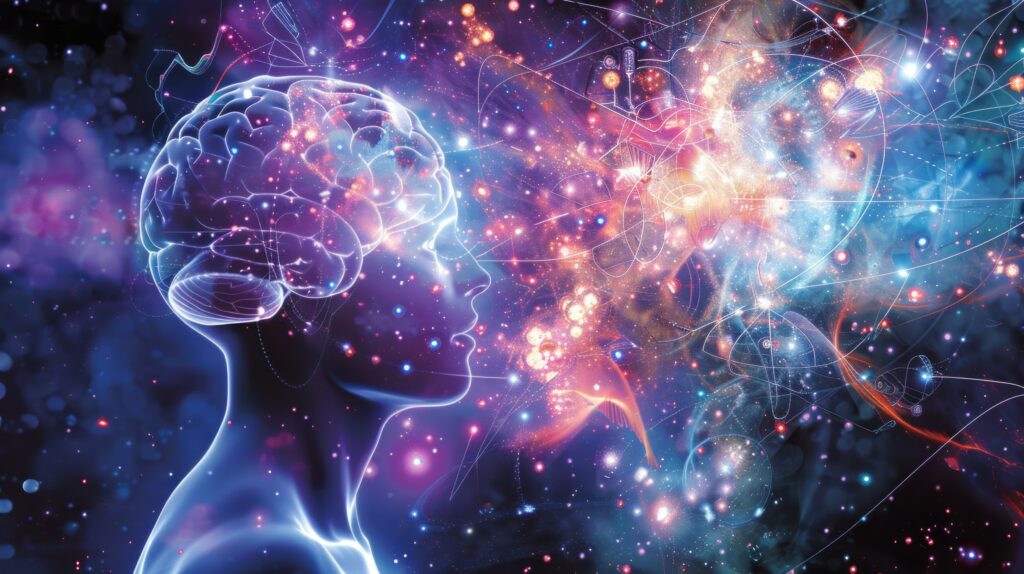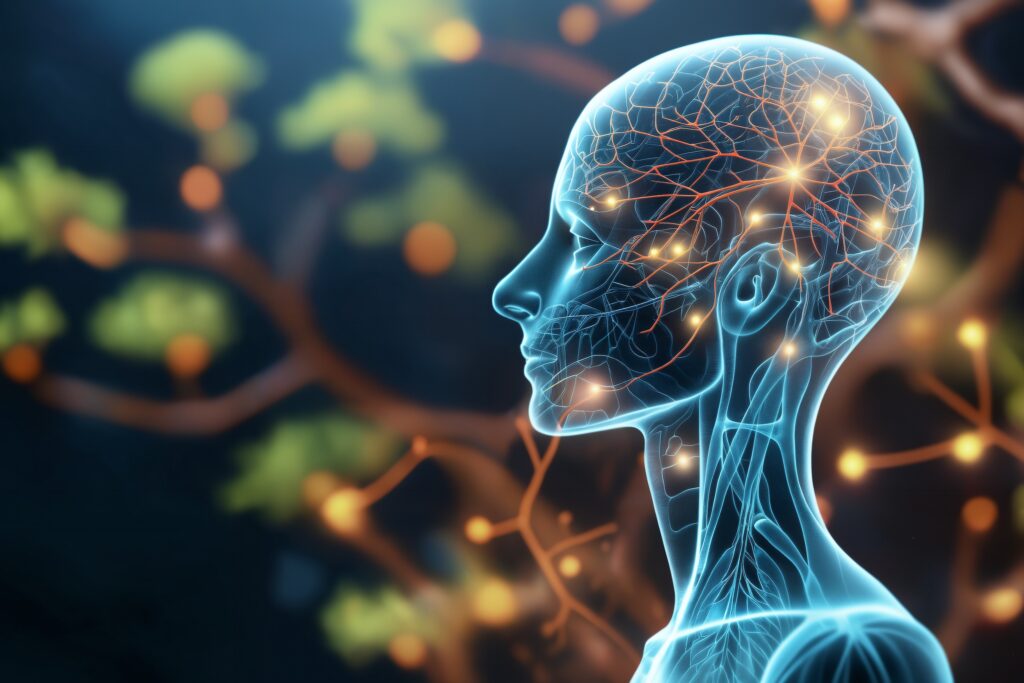As someone in recovery from a career in academic philosophy, I’ve held a grudge against Descartes for a long time. However, I never imagined that the final refutation of his wretched mind-body dualism would be delivered by cannabis, my life’s companion and second career.
Indeed, it has given me no small amount of pleasure to learn that Israeli researchers are finding that with regard to understanding the medical benefits of cannabis, the biomedical model—based on mind-body dualism—just doesn’t work. This has potentially revolutionary implications for the medical establishment, and it also raises questions about the use of AI in the cannabis industry—which is about to be everywhere, all at once.

For it seems like all the new tech companies that promise to provide a “scientific” way to find the “best” strain for someone to consume based on physiological or genetic factors is based on the Cartestian / biomedical model that excludes the relevance of extra-pharmacological factors—such as set and setting—to the efficacy of the drug.
At the same time, one of the primary reasons why cannabis is a problem for this model is because its effects are so incredibly subjective and impossible to predict. Although it is widely recognized that the same strain may have radically different effects in two different people with similar health profiles, the industry often acts as though this subjective unpredictability can be “overcome” with the right “data points.”
Rather than a problem, the fact that cannabis has such subjective effects allows us to better appreciate the mind-body connection and (finally) reject the Cartesian belief in a mechanistic world.
How Jews are Challenging Cartesian Dualism
Descartes viewed mind and matter as ontologically distinct substances, different in kind. Since Mind (“thinking stuff”) cannot affect Matter (“extended stuff”), Descartes could not explain how the mind causes the body to move. His logical conclusion was that G-d was somehow responsible for this miraculous, only apparent relation between mind and body.

Although it may seem as though we no longer need to appeal to the Divine to explain the coordination between mind and body, in many ways we still assume that “mental stuff” is unrelated to “physical stuff,” reflected in the still-dominant view that non-biological factors do not shape our response to drugs.
This assumption was the basis for how the medical community first conceived of the “placebo”—a substance that has no therapeutic effect—as “fake” medicine that provided “false” or “merely psychological” effects that could not be explained or predicted.
The enduring influence of Cartesian dualism also explains why most doctors insist that the medical benefits of THC for the body are unrelated to its intoxicating effects in the mind, which—they assume—lack any therapeutic value.
However, this view was challenged by a 2019 study conducted in Israel by Dr. Maya Lavie-Ajayi and Dr. Pesach Shvartzman which found that smoking cannabis provided significant relief from chronic pain even (and especially) when there was no reduction in pain level:
“In clinical practice, patients often report a sense of relief when using medical cannabis, even when there is no reduction in their pain level. This discrepancy between subjective experience and medical variables highlights the need for a rigorous exploration of patients’ subjective experiences that is not based on predefined variables.” “Restored Self,” Pain Medicine (2019)
The patients interviewed for the study reported a “sigh of relief” connected to the corporeal experience of smoking cannabis, as well as a “return to normality,” often described as a life-changing treatment:
“I can simply say that I was reborn.”
“Everything has changed in my life.”
In my own experience smoking cannabis to manage the symptoms of PTSD, I have found that the intoxicating effects can alleviate the pain and persistence of flashbacks, anxiety, and depression. In colloquial terms, I usually say that smoking cannabis provides some space in my mind to think, apart from all the noise.

This often includes the sense of a “restored self” expressed by the patients interviewed by Lavie-Ajayi and Shvartzman; an experience they describe as a therapeutic effect of smoking cannabis:
“Restored Self is a bodily subjectivity that indicates a regained sense of self, of normality, and of control over one’s life. It is a subjective sense that does not necessarily correlate with objective levels of functioning.”
The medicinal value of THC challenges the current biomedical understanding of cannabinoid therapy because it produces mind-altering effects with therapeutic value that are highly subjective, and “do not necessarily correlate with objective levels of functioning” capable in a state of sobriety.
The sort of existential healing experienced by many people who consume cannabis cannot be measured in quantitative or scientific terms, and it is no less essential to our wellbeing than relief from physical pain. Even more, the aforementioned study indicates that the intoxicating effects of THC actually enhance its analgesic properties for those who suffer from chronic pain.

The Israeli researcher Dr. Ido Hartogsohn has written extensively about how psychedelics reveal the mind-body connection and can help us reevaluate the meaning and medical value of the placebo effect. His co-authored article “Harnessing placebo: Lessons from psychedelic science” in the Abstract Journal of Psychopharmacology explains the epistemic mistake with viewing the placebo as the cause rather than control for the placebo effect:
“The placebo does not cause the placebo effect; it controls for it. Indeed, by acting as the blank—or an inactive placeholder—of the drug, the placebo controls for the “nonspecific effect” of everything that is not the drug (i.e., ‘the rest’).”
In other words, the placebo effect confirms that context-dependent physical, psycho-social and cultural factors shape drug effects, and that these “extra-pharmacological variables” are worth harnessing for patient benefits. Hartogsohn reframes the way we understand the placebo effect in order to acknowledge that:
“Drug and nondrug factors have an interactive and synergistic relationship.”
Implications of the Mind-Body Connection
Hartogsohn draws a parallel between psychedelic and placebo research to argue that “set” and “setting” are not just factors that shape the effects of psychedelics but also the “extra pharmaceutical” variables that underlie placebo effects. He explains that “set” refers to one’s psychological state and mindset (expectations, mood, and intentions) when taking a drug, and “setting” refers to the physical, social, and cultural environment in which one takes the drug.
Hartogsohn takes the placebo effect seriously to challenge the biomedical model based on the nonrelation of mind and body that presumes a drug will have the same effect no matter the context in which it is taken:
“In practice and research, medical treatments are never isolated from their context; rather, they are embedded within it. That is to say: person, treatment, and context invariably interact.”

This framework helps us appreciate the aforementioned Israeli study that suggests the use of cannabis often leads to pain relief even (and especially) without the reduction of pain level. In other words, part of why cannabis is effective for pain relief is because its intoxicating effects help us change our attitude about our pain. And this is precisely the kind of dynamic interaction between mind and body that is dismissed by the biomedical model that views the mind-altering effects of cannabis as extraneous, unnecessary, lacking in therapeutic benefits.
One of the important implications of this research is that our enjoyment of any particular strain of cannabis will not simply depend on genetic or physiological factors, and it’s not simply a product of the flower and its distinctive properties. In addition, the extra-pharmaceutical factors that shape the experience of consuming cannabis help explain why the effects of any particular strain are so variable from person to person.
However, this also reinforces the value of medical supervision for those who consume to alleviate the symptoms of a specific condition or illness. On the other hand, it also explains why casual, recreational users don’t seem so picky about what kind of weed they consume, for other factors shape their enjoyment of cannabis and the therapeutic benefits received.
In particular, Hartogsohn’s research allows us to appreciate how a change in set and setting—in itself— has therapeutic benefits, and the importance of environment and community in shaping the experience and effects of cannabis.

In order to stay connected with the Canna-Jewish community, sign up to receive The Canna Jewish News delivered right to your inbox. To learn more about the role of cannabis in the Jewish tradition, check out our new online course The Jewish Relation to Cannabis, sold with the Yeshiva Subscription to Cannabis Jew Magazine.







